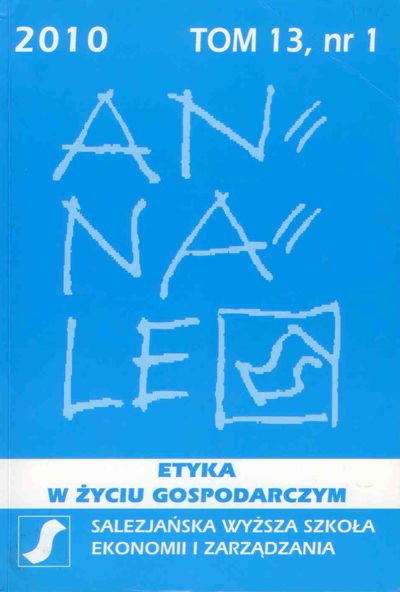Lekcja kryzysu. Etyczny kapitalizm konieczność czy utopia?
DOI:
https://doi.org/10.18778/1899-2226.13.1.17Słowa kluczowe:
crisis, ethics, Bauman, SorosAbstrakt
For the last few months the financial crisis is being widely discussed. However, it was foreseen some time ago by at least two people who named its deep causes. A philosopher of culture, Zygmunt Bauman, claims that a postmodern utopia of “morality without ethical code” makes it impossible to solve problems created by our era of “liquid modernity”. George Soros, an American currency speculator, stock investor, businessman, philanthropist, political activist, and a pupil of Karl Popper, maintains that the crisis is a result of a victory of “transaction morality” over “morality of the open society”. The two diagnosis of the present crisis show that the process of deregulation of the economy should not lead to the point where ethics loses its normative functions. This is the lesson of the crisis. Capitalism must be ethical or none.Bibliografia
Bauman Z., Dwa szkice z moralności ponowoczesnej, Instytut Kultury, Warszawa 1994.
Google Scholar
Bauman Z., Szanse etyki w zglobalizowanym świecie, „Znak”, Kraków 2007.
Google Scholar
Soros G., Kryzys światowego kapitalizmu, Muza SA, Warszawa 1999.
Google Scholar
Pobrania
Opublikowane
2010-05-15
Jak cytować
Szulczewski, G. (2010). Lekcja kryzysu. Etyczny kapitalizm konieczność czy utopia?. Annales. Etyka W Życiu Gospodarczym, 13(1), 177–185. https://doi.org/10.18778/1899-2226.13.1.17
Numer
Dział
Artykuł
Licencja

Praca jest udostępniana na licencji Creative Commons Attribution-NonCommercial-NoDerivatives 3.0 Unported License.









